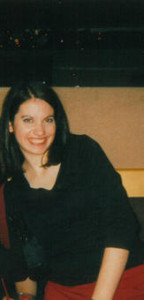Let’s talk about arrogance. Because I say so.
We’ve all noticed an uptick in the arrogance factor in society. New York Times opinion writer David Brooks made it the subject of a recent column, stating in part:
When you look from today back to 1945, you are looking into a different cultural epoch, across a sort of narcissism line. Humility, the sense that nobody is that different from anybody else, was a large part of the culture then. But that humility came under attack in the ensuing decades. Self-effacement became identified with conformity and self-repression. A different ethos came to the fore, which the sociologists call “expressive individualism.”
Now, in one sense, “expressive individualism” is what we do as writers. We are boldly sharing part of ourselves, and should do so confidently. But here’s the thing: this confidence should be evident in our pages alone. When it’s off the page and in people’s faces, “expressive individualism” can too easily become slap-deserving arrogance.
There are so many examples of arrogance in culture today. Perhaps the most notable in the last few weeks was Kanye West deciding he could interrupt Taylor Swift’s acceptance speech at the MTV VMA awards. Taking Swift’s microphone, and moment, West extolled the merits of another nominee in front of a national television audience. Why? Because of “expressive individualism” gone awry.
So the idea that it’s all about me and I will make you admit it is part of the zeitgeist, just another move you make to get what you want.
And it’s filtering down like an acid drip into the world of aspiring writers. When I speak at writers conferences I am gratified that most people seem eager to learn and determined to grow. But there has been an increase in those who think that having a chip on their shoulders is an essential part of their campaign to get published.
It’s isn’t.
True, there are some people who are arrogant and who do get published. But they get published in spite of arrogance, not because of it. They get published because they can actually write.
But for the large majority of the new arroganti, such behavior is not going to get them closer to a contract. It will, in fact, hinder their chances.
Confidence, on the other hand, is good. And necessary. But there is a fine line between confidence and arrogance. That line is something called professionalism.
A professional doesn’t waste another person’s time by overstaying his welcome.
A professional knows what someone – i.e., an agent or editor – is looking for, and delivers it in a precise manner.
A professional doesn’t follow up frustrations with nasty notes, diatribes, or slanderous blog posts. Nor tear down other writers who get published.
In other words, a true professional knows when to put a cork in it and get back to the business of learning to write better.
A professional will, over time, gain respect. That leaves doors open for future submissions.
The arrogant burn bridges and find doors slamming.
Arrogance talks smack. Confidence does its talking on the page.
So be bold, be confident, be “expressively individualistic,” but use that energy for the writing itself. Because even if you succeed while being arrogant, even if you land on the bestseller list, it will be a Pyrrhic victory. As writer Michael Bishop puts it, “One may achieve remarkable writerly success while flunking all the major criteria for success as a human being. Try not to do that.”


